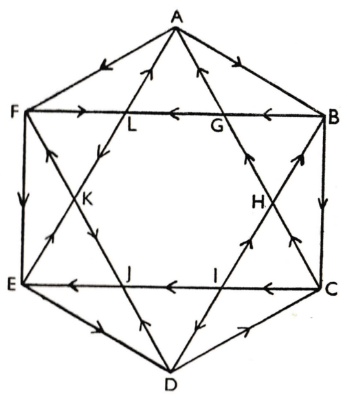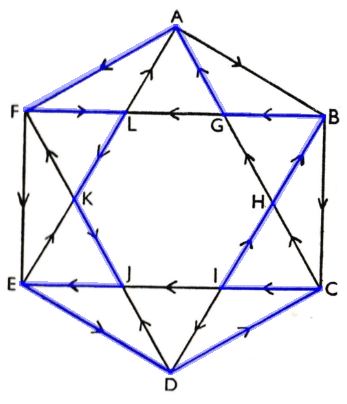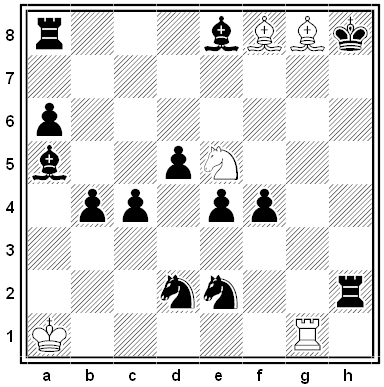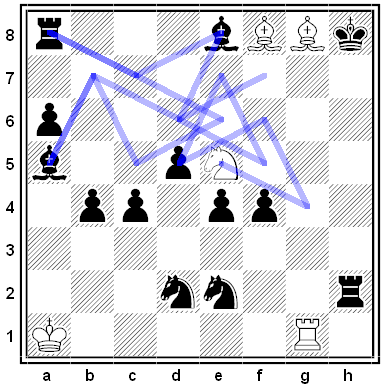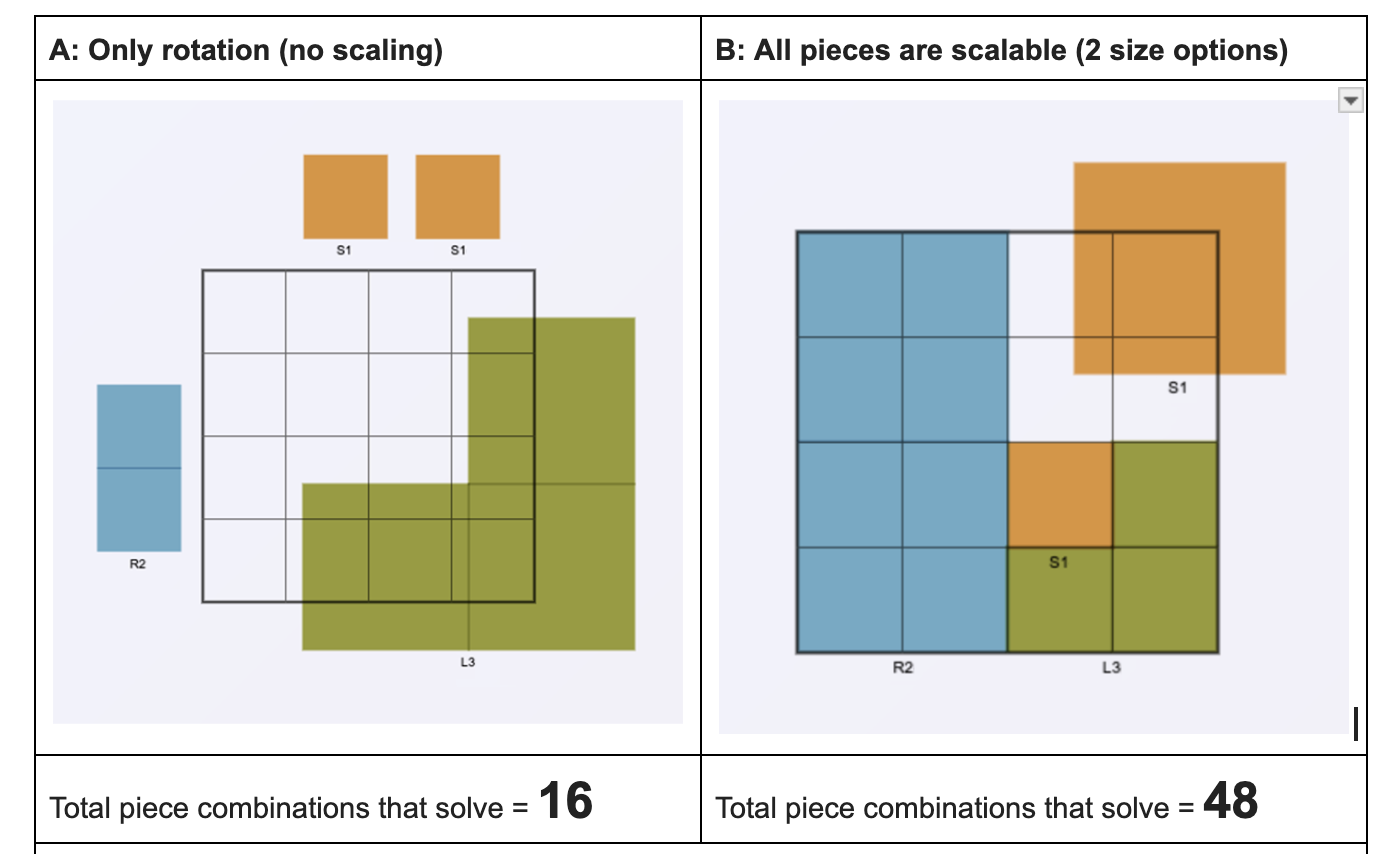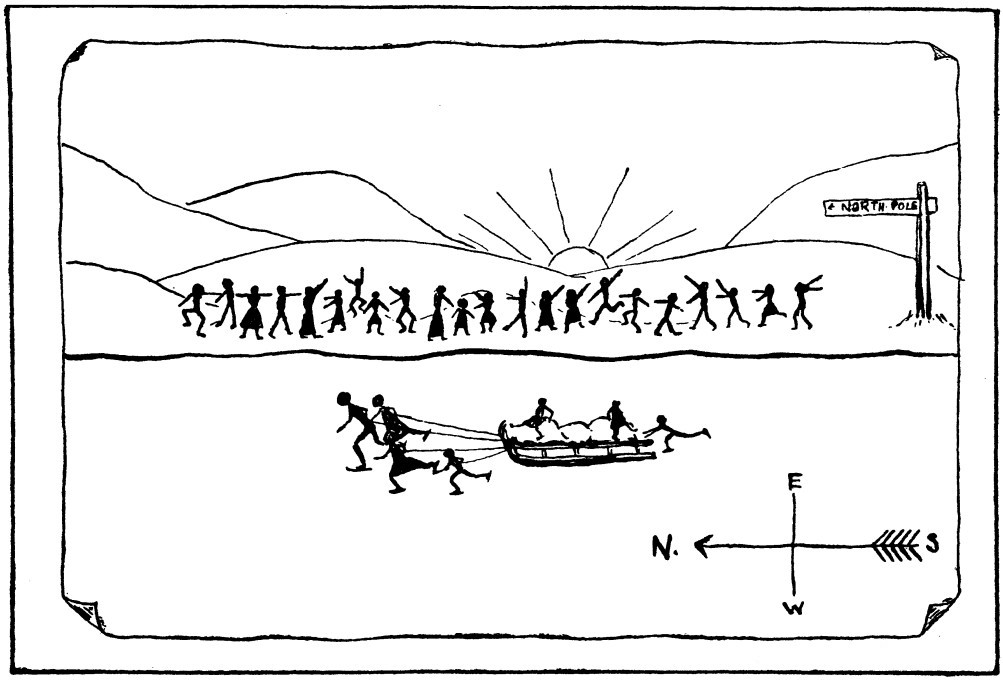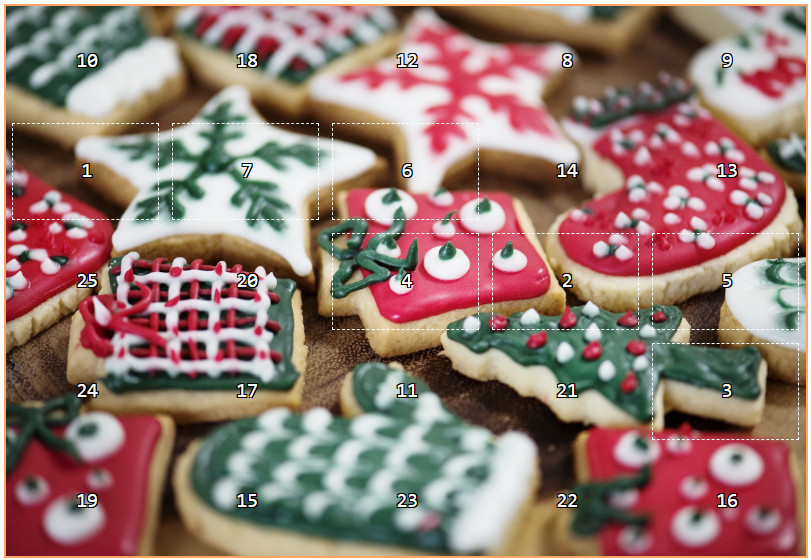A problem from the October 1961 issue of Eureka, the journal of the Cambridge University Mathematical Society:
“The map below represents one-way street system of a certain university city, the direction in which travel is allowed being indicated by arrows. An undergraduate living at A wishes to cycle round the city, visiting each intersection just once, and returning to A. What route must he take?”
